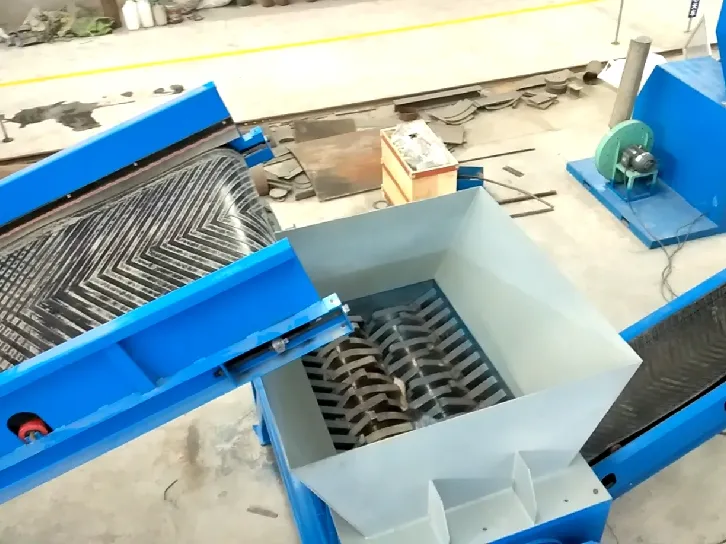

Nov . 06, 2024 20:51 Back to list
The Importance of Cable Granulation in Recycling
In today's rapidly evolving technological landscape, the need for sustainable practices has never been more critical. Among various recycling processes, cable granulation stands out as an efficient method for reclaiming valuable materials from end-of-life cables. As electronic and electrical products proliferate, the disposal of cables poses significant environmental challenges. This article explores the process of cable granulation, its benefits, and its role in promoting a circular economy.
Cable granulation is a process that involves the separation and recovery of materials from various types of electrical and telecommunications cables. These cables consist of different materials, including copper, aluminum, plastics, and rubber. The granulation process begins with the collection of scrap cables, which are typically stripped of any non-metal components before being sent for processing. In specialized facilities, these cables are fed into granulators that shred them into smaller pieces, making it easier to separate the valuable metals from the insulation materials.
One of the primary materials recovered through cable granulation is copper, a highly sought-after metal in the recycling industry due to its excellent electrical conductivity and resistance to corrosion. The value of copper on the commodities market can fluctuate significantly, but it remains one of the most recycled metals globally. By recycling copper through cable granulation, we reduce the need for mining new copper, which is an energy-intensive and environmentally damaging process.
Another benefit of cable granulation is the recovery of plastic materials. Insulation and sheathing in cables are often made from various types of plastics, which can be further processed and reused in the production of new products. This not only conserves resources but also minimizes the amount of plastic waste that ends up in landfills and oceans. The proper disposal and recycling of these plastic materials help address the global plastic pollution crisis.

The environmental benefits of cable granulation extend beyond resource recovery. By diverting cables from landfills, this process reduces greenhouse gas emissions associated with waste decomposition and mitigates the leaching of harmful substances into soil and groundwater. Cables may contain toxic materials, such as lead and cadmium, which can pose significant health risks if not handled properly. Granulation allows for the controlled processing of these materials, ensuring that they are disposed of following environmental safety regulations.
In addition to environmental advantages, cable granulation presents significant economic benefits. The recycling industry creates jobs and stimulates local economies through the collection, processing, and resale of recovered materials. By investing in cable granulation, governments and businesses can foster sustainable economic growth while contributing to environmental protection efforts.
As we look toward a more sustainable future, the importance of cable granulation in promoting a circular economy cannot be overstated. A circular economy emphasizes the reuse, repair, and recycling of resources to extend their lifecycle and minimize waste. By integrating cable granulation into our waste management strategies, we can support this model, ensuring that valuable materials are continuously cycled back into production rather than being discarded.
To encourage the growth of cable granulation, several steps can be taken. Increased public awareness regarding the importance of proper cable disposal and recycling is crucial. Educational campaigns can inform consumers about the environmental impacts of improper disposal and the benefits of recycling. Additionally, implementing stricter regulations on electronic waste disposal can help ensure that end-of-life cables are sent to recycling facilities instead of landfills.
In conclusion, cable granulation is a vital component of modern recycling processes, offering substantial environmental, economic, and social benefits. As we strive for a more sustainable future, it is imperative to prioritize recycling efforts and integrate cable granulation into our waste management practices. By doing so, we not only reclaim valuable materials but also take significant strides toward reducing environmental impact and promoting a healthier planet for generations to come.
Latest news
Troubleshooting Common Eddy Separator Problems
NewsJul.04,2025
The Role of Metal Recycling Plants in Circular Economy
NewsJul.04,2025
The Impact of Recycling Line Pickers on Waste Management Costs
NewsJul.04,2025
Safety Features Every Metal Shredder Should Have
NewsJul.04,2025
How Industrial Shredders Improve Waste Management Systems
NewsJul.04,2025
How Cable Granulators Contribute to Sustainable Recycling
NewsJul.04,2025